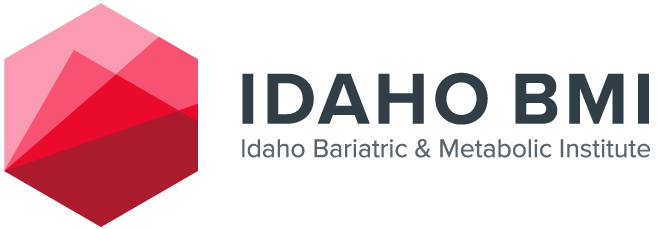Exercise and protein. Mobility and meat. There are thousands of books, blogs, and videos on these topics, so it’s easy to feel confused.
Truth is, exercise is not the key to losing weight. It’ll help, but when it comes to burning calories, it’s actually pretty inefficient. To burn 1,000 calories, you would have to run – not walk – for hours. And it’s important to eat the right protein to feel right.
So what is exercise good for? Quite a lot.
Six Best Reasons to Exercise
1. Brain Health
Most of us are stressed these days. Really stressed. But the release of endorphins that comes from exercise is proven to relieve stress and anxiety. Exercise also helps maintain brain cells. BDNF is an extremely important chemical that when released, can help generate new brain cells. Good sleep also means a good brain, and exercise helps both the duration and quality of your sleep. So whether it’s feeling rested, happier, or keeping your memory sharp, exercise works wonders for our mental health.
2. Insulin Resistance
Think of a savings account. Now imagine not being able to withdraw from it. Crazy right?
That’s similar to what most of us are doing to our bodies in our modern lifestyle. We can store energy (fat), but our poor diets and habits have made it far more difficult to access that fat, withdraw it, use it as fuel. And insulin resistance is a huge reason.
Exercise is proven to increase insulin sensitivity, which is what you want to have because the insulin your body produces will be more effective. After his many years seeing patients at both Idaho BMI and Everest Surgical Institute, Dr. Brown would say insulin resistance is the one thing he would magically fix if he could. It’s that important for long-term health. And while exercise isn’t magic, it sure is a tool for reducing insulin resistance.
3. Inflammation
This one’s a little tricky but in a fun way. See, exercise actually causes inflammation in the short term. Take lifting weights – what’s actually happening is a bunch of tiny tears in the muscle, which is a form of inflammation. Now, the good stuff starts in repairing these tears. The body doesn’t just produce muscle in this stage, but develops a stronger ability to fight inflammation going forward. It’s almost a paradox. We cause a little inflammation, but later receive a much greater reward (along with muscle – more on that soon).
4. Increased Metabolism
Not all fat is the same. We actually have white and brown fat, and brown is a much better indicator of fat burning and overall metabolic health. White fat is often associated with being overweight.
So brown fat is what we want right? Well, exercising stimulates the maintenance and growth of brown fat cells. Speaking of cells…
5. Autophagy
Greek for “self-eating”, autophagy is just the proper term for when the body recycles old, damaged cells. When we exercise, the body gets a signal that it needs to be more efficient, and toss all the extra baggage not working (this is actually why fasting also stimulates autophagy). Autophagy is deeply connected with improving inflammation, insulin sensitivity, sleep and more.
6. Movement
At age 40, we start losing muscle. That’s just life, and it has huge implications on our health and longevity. Keeping muscle means less stress on joints, which means less arthritis, better movement, and more activity in your later years – wrestling with the grandkids, gardening, hiking, you name it.
The Key to Exercise: Consistency
Other than poor form with too much weight, there’s really not a “bad” kind of exercise. Dr. Brown normally lifts weights because he’d say maintaining muscle is slightly more important than cardio. But if you enjoy cardio, the runner’s high is real, and it is good for you!
We all differ in capabilities. After all, Dr. Brown has patients in wheelchairs. But everybody can do something. Be safe and listen to your body, but push yourself a little bit. And remember that consistency is often more important than intensity. A good analogy is water and rock. Water’s very soft, but over time, even a tiny trickle can have a tremendous effect on rock, sculpting and shaping it. Just look at the Grand Canyon! That process is what exercise can do to our bodies.
Three Truths about Protein
Moving on to protein – another topic of debate and misinformation. Dr. Brown has answers that may not be popular with some of you, but they are based on scientific fact.
1. Animal Protein is Better than Plant Protein
Absolutely. Proteins are made of amino acids. Our bodies can’t make some of them, so we have to get them elsewhere. Well, that “elsewhere” is almost exclusively animal protein.
2. Protein Drinks are not as Good as People Think
Correct. There’s a perception that protein drinks are a magic shortcut. Even Dr. Brown used to drink them. But not only is protein from whole foods better, it doesn’t have the heavy metals many protein powders do..
3. You Don’t Need as Much Protein as You May Think
True. Yes, protein is important, but that doesn’t just mean more is better. Think back to autophagy – one of the things the body recycles is protein. So no need to obsess over it.
Best Kinds of Protein
Meat and eggs, pure and simple. Cheese if you don’t have an allergy or react negatively. These types of animal products aren’t just great sources of protein, they’re nutrient dense all-around.
Summarizing Exercise and Protein
There’s an ocean of info on these topics, but remember the key points: consistency, do whatever it is you enjoy, push yourself a little bit, avoid injury, drink water and prioritize meat, eggs and cheese.
Perhaps most importantly, we all differ. It can be easy to judge ourselves too harshly or compare ourselves to others. But try comparing yourself…to yourself. What can you do today, that can be even slightly improved tomorrow, then next week, then next month? Small investments like that have enormous payoffs for the rest of your life.
Brain Over Belly is available wherever you get your podcasts. Subscribe now for this episode on the microbiome, and others discussing weight loss, general health and longevity. Brain Over Belly, get it on Listen Boise today. What have you got to lose?

